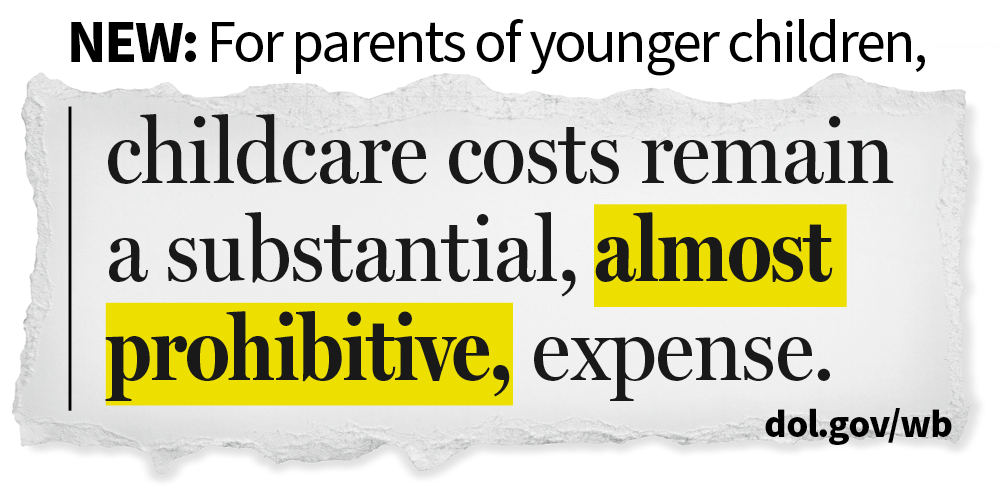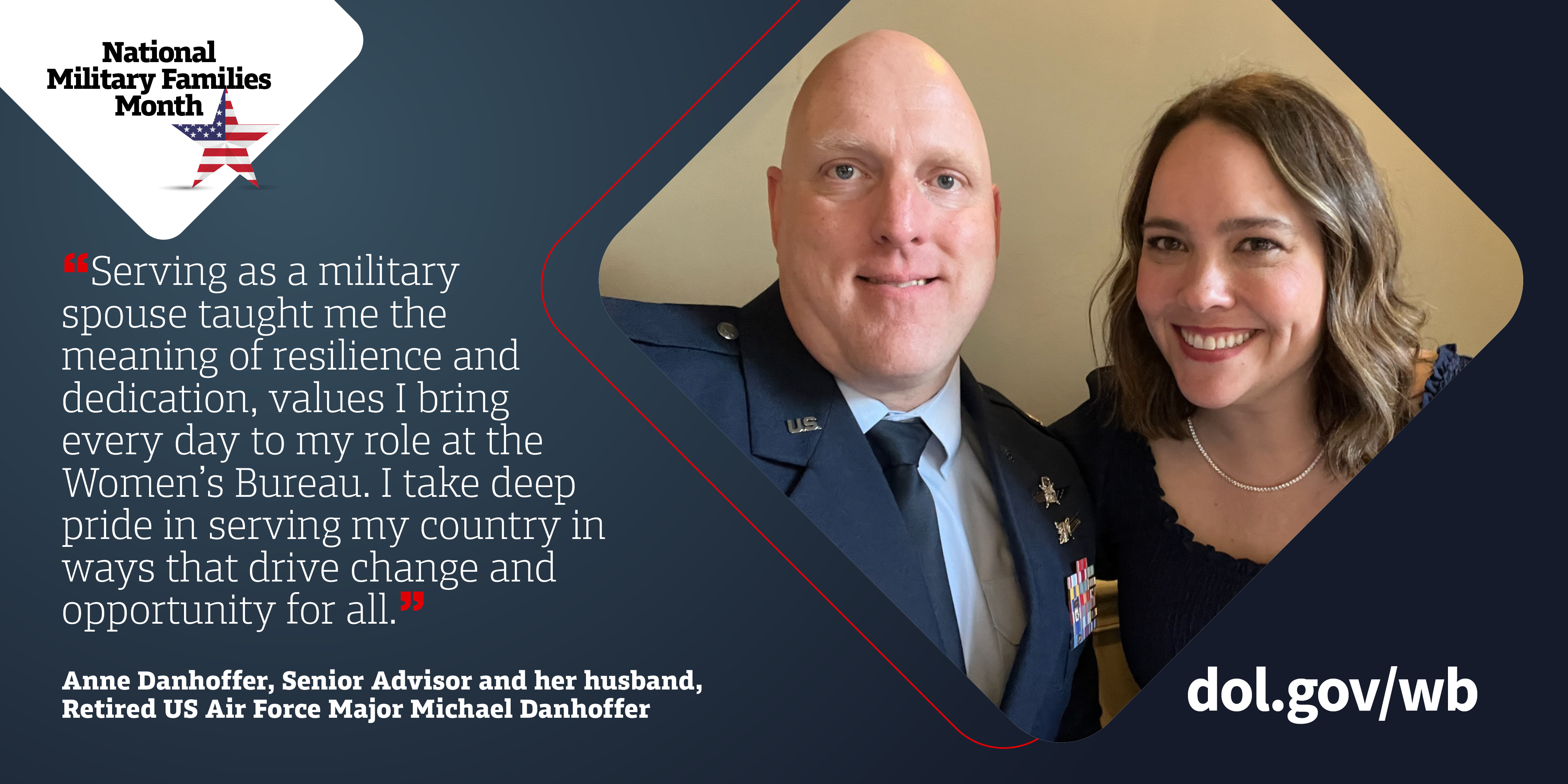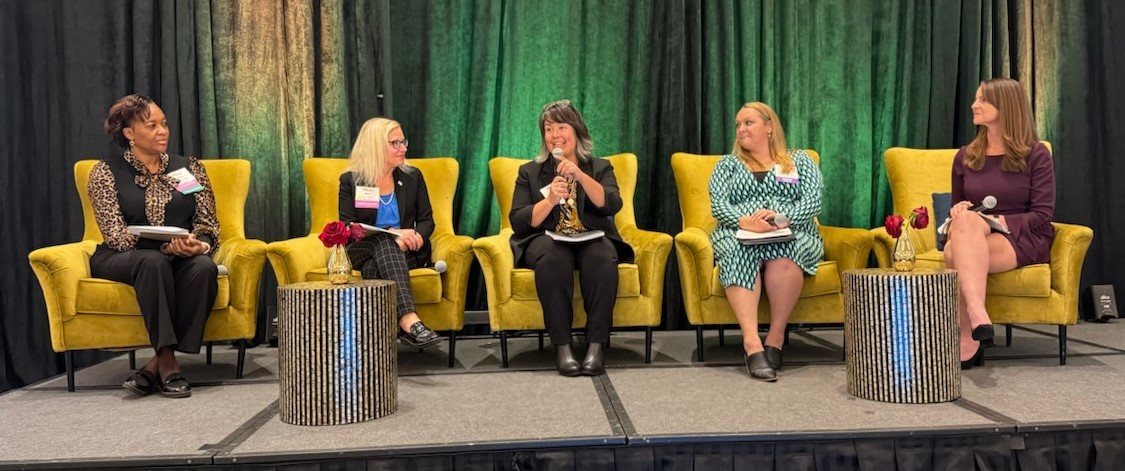
New data on childcare prices!

The Women’s Bureau has updated our flagship National Database of Childcare Prices (NDCP), which now provides childcare price data at the country level from 2008-2022. The NDCP, originally published in 2023, is the most comprehensive federal source of childcare prices at the county level. Previously, data had only been available through 2018. This update includes data from 48 states, Washington, DC and Puerto Rico.
Our analysis of the new data shows that child care remains a prohibitive expense for many families:
- U.S. families spend between 8.9% and 16.0% of their median income on full-day care for just one child, with annual prices ranging from $6,552 to $15,600 in 2022.
- In some counties the median cost of center-based infant care in 2022 was more than the cost of a year of rent at the national median ($15,216).
You can explore all the data for yourself! Go to our NDCP webpage for maps, analysis and to download the data. You will also find county-level fact sheets that allow for comparison of multiple counties within a state.
Urban Institute research on paid family and medical leave

The Women's Bureau published research conducted by the Urban Institute showing that a national paid family and medical leave program would reduce poverty and narrow the racial poverty gap. According to the Urban Institute, an equitable nationwide paid leave program providing 12 weeks leave would cover 97% of workers and reduce poverty by 16% among people in families receiving paid leave benefits.
The package of releases includes a report on the impact of adopting a national paid family and medical leave program, a literature review, a brief on the impact of state paid leave policies on taxes, and four state-specific reports estimating the costs and benefits of proposed paid leave policies in Maryland, Michigan, Pennsylvania and Washington.
Promoting apprenticeship as a pathway to good jobs for women
The Department of Labor celebrated the 10th anniversary of National Apprenticeship Week by showcasing the value of Registered Apprenticeship as a pathway to career success – including for women and other underserved populations. Currently, women make up less than 15% of active apprentices. But that’s changing thanks to the Women in Apprenticeship and Nontraditional Occupations (WANTO) grant program and other Labor Department programs.

- Learn more about women in apprenticeship and nontraditional occupations
- Visit the Department of Labor’s National Apprenticeship Week hub
Overcoming barriers to employment for women veterans and military spouses

We’re grateful for the veterans and military spouses on staff at the Women’s Bureau, who bring an invaluable perspective to our work. This month we hosted two webinars about connecting women veterans and military spouses to good jobs. Over on the Department of Labor blog, Senior Advisor Anne Danhoffer shared how her experience as a military spouse informs her work expanding job opportunities for other military spouses and all women.
Collaborating to improve workplace outcomes for women and people with disabilities

The Women’s Bureau and the Office of Disability Employment Policy (ODEP) announced a new collaborative effort to champion inclusive policies that enhance access to good, high-quality employment opportunities for all workers, including women and people with disabilities. The effort leverages ODEP’s State Exchange on Employment & Disability initiative to engage and educate policymakers on inclusive policies that support worker equity, such a as paid leave, access to affordable child care and elder care, increasing representation in high-paying trade occupations, and more.
WB Director Wendy Chun-Hoon (pictured center above) spoke about the new effort on a panel at the Women in Government Leadership and Innovation Summit in Charlotte, N.C.
Working to end gender-based violence and harassment in the world of work
On November 25 we kicked off the Global 16 Days of Activism Against Gender-Based Violence with a social media campaign that will go through December 10 and share information about our work to end gender-based violence and harassment (GBVH) in the world of work. Follow the #16Days hashtag on LinkedIn and X to get news and resources and keep an eye out for a blog series in early December about various aspects of the effort to prevent and address GBVH in the world of work.
- Get our fact sheet on GBVH in the world of work in nine languages!
Upcoming Webinars
- 5 Ways to Address Gender-Based Violence in the World of Work. Thursday, December 5, 12 p.m. PST. This 45-minute webinar hosted by our Western region will provide practical strategies to address gender-based violence and harassment. Register here.
- What To Expect When Expecting at Work: PWFA and the Power to PUMP. Thursday, December 12, 12 p.m. PST. Learn about the Family and Medical Leave Act, pregnancy accommodations, the Pregnant Workers Fairness Act and more in this webinar from the Women’s Bureau and other Labor Department agencies. Register here.
Women's Bureau in the News
- Yahoo Finance: DOL: The cost of child care is more than rent in some U.S. counties
- CBS News: Child care in the U.S. today can cost more than families pay for rent, a mortgage or college tuition
- NBC News: Child care cost as much as rent for many families at inflation's peak, new data shows
- Vice: Families Pay as Much in Rent as They Do for Child Care
- The Hill: Are you a HENRY? The rise of six-figure earners who don’t feel rich
We Want to Hear from You!

“Occupational segregation” is the gendered sorting of men and women into different types of jobs. It leads to women being overrepresented in certain jobs, which are valued and compensated less than male-dominated jobs.
We’ve heard from many working women about their experiences with gendered job expectations, the challenges they face at work, the support systems that help them thrive and the policy changes that would help them succeed. We'd like to hear from you.
Follow the Women’s Bureau on Social Media
Follow us on LinkedIn and X to learn more about the latest research, initiatives, policies and updates related to working women and their families.
